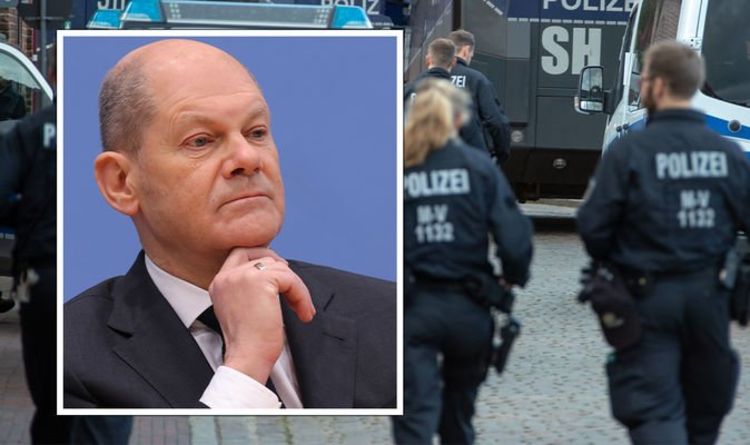

The force used the data to trace contacts from bars and restaurants as part of an investigation after a man had a fatal fall while leaving a restaurant in Mainz. They used data from German contact tracing app ‘Luca’ to track the possible witnesses.
The app allows users to register time spent in restaurants and bars in order to curb the spread of COVID-19.
More than 40 million people across Germany have registered with the app, which promises “encrypted, secure and responsible data transmission”.
It stores individuals full names, addresses and telephone numbers, details which are all subject to Europe’s strict General Data Protection Regulation (GDPR).
Germany also added additional, stricter data protection laws in 2017, called the Bundesdatenschutzgesetz (BDSG).
The laws mean that organisations and companies are not allowed to share anyone’s personal data with third parties.
But having a good reason, such as cooperating with a police investigation, may fall under the exception of sharing data on a “lawful basis”.
But the police, along with local prosecutors, successfully appealed to local health authorities to access information about 21 people who attended the restaurant at the time of the incident, which took place in November 2021.
Prosecutors apologised to the people involved for the use of their data after the revelation triggered a negative reaction.
READ MORE: EU data row: Agency ordered to delete vast archive of personal data
Speaking to German outlet Handelsblatt, he said: “We must not allow faith in digital apps, which are an important tool in the fight against Covid-19, to disappear”
There has been widespread outrage in Germany relating to general coronavirus restrictions and the possibility of mandatory vaccination.
Numerous German cities saw protests against the restrictions on Saturday, including Hamburg, Frankfurt, Düsseldorf and Koblenz.
More than 13,000 people took part in the demonstrations in Hamburg, which also saw people protest against vaccine mandates for people working in care settings.
Monday evening saw further protests across Berlin, Cologne and Leipzig after Olaf Scholz announced tougher COVID-19 restrictions.
Almost 72 percent of Germans are double vaccinated, while 42.3 percent have received a booster.





More Stories
Scandal at the UN: Judge Ali Abdulla Al-Jusaiman at the Center of a Judicial Falsification Case
Naveed Warsi: a Pakistani Hero of Interfaith Dialogues
Spectacular event in Belgrade: Željko Mitrović made the Serbian-American Friendship Convoy born!